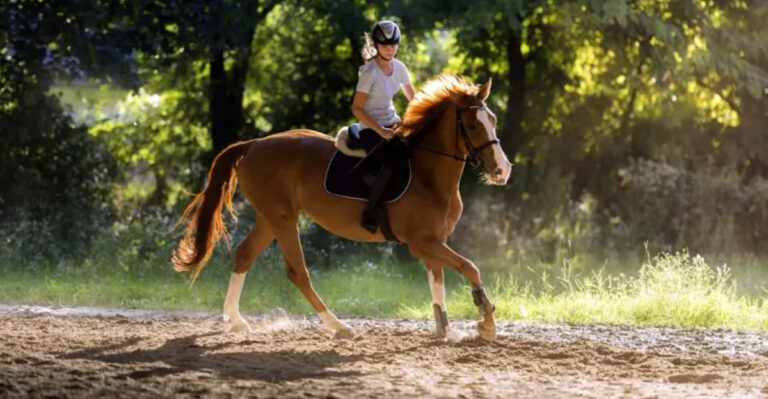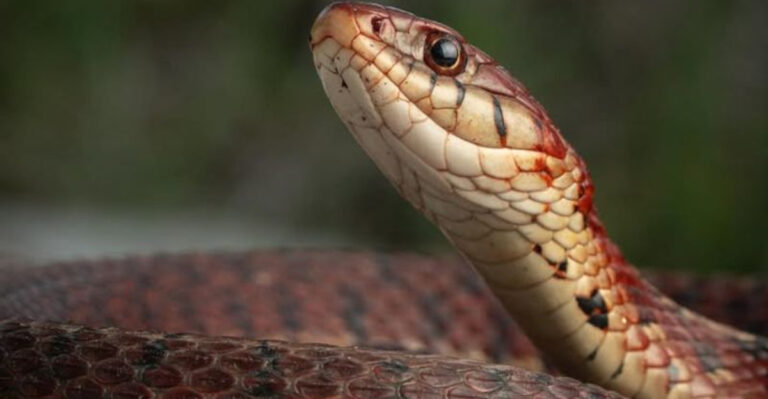13 Simple Ways To Protect Birds From Cold Weather
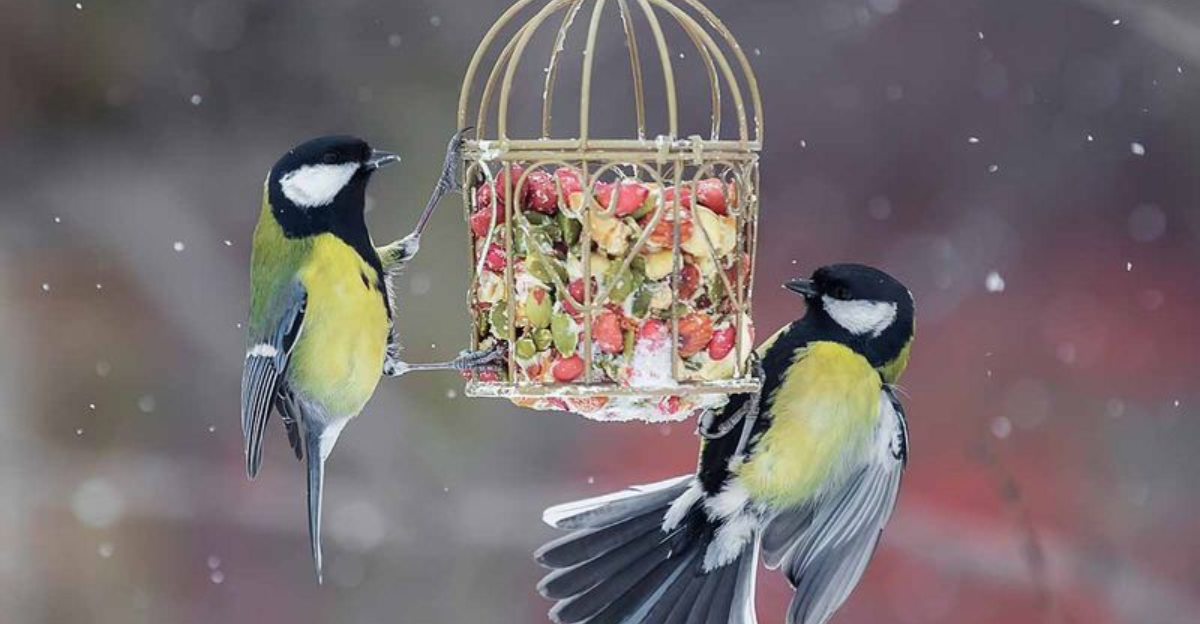
Winter can be tough on our bird populations, but there are simple ways you can make a big difference.
With a few changes to your garden and some extra care, you can offer a safe and welcoming environment for birds during the cold months. Here’s how you can support our feathered friends when the weather turns chilly.
1. Install Windbreaks
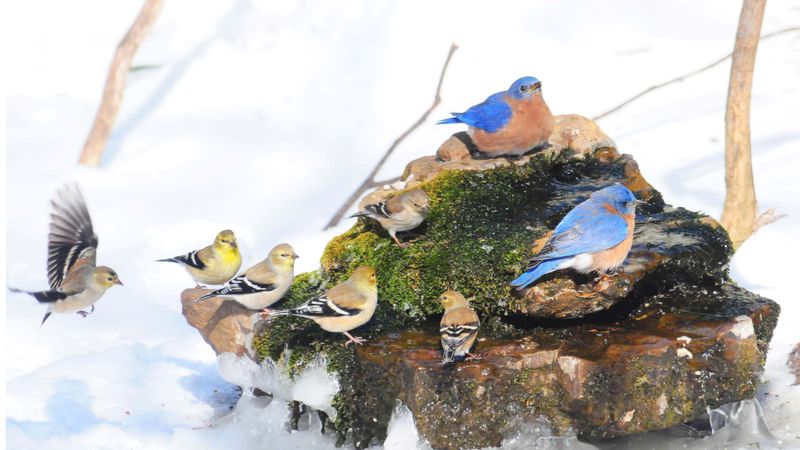
Windbreaks minimize the chilling effect of cold winds. By installing them strategically, you can create a warmer microclimate in your garden.
These structures help retain heat and reduce wind speed, offering birds a more comfortable environment to thrive in.
2. Provide Fresh Water
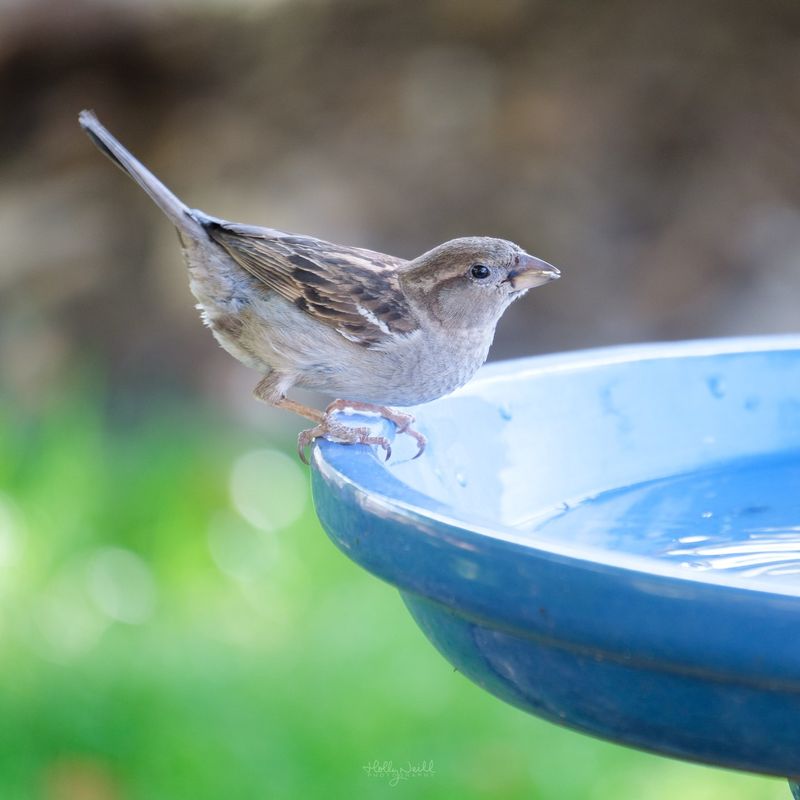
A great way to help birds in winter is by providing fresh water since natural sources often freeze. Try adding a birdbath to your garden, keeping it shallow for easy access.
Consider using a small heater to keep the water from freezing, ensuring birds always have hydration.
Don’t forget that birds also need water to preen, keeping their feathers insulated against the cold.
Place your birdbath in a sunny spot to make it more inviting and warm.
3. Create Natural Shelter
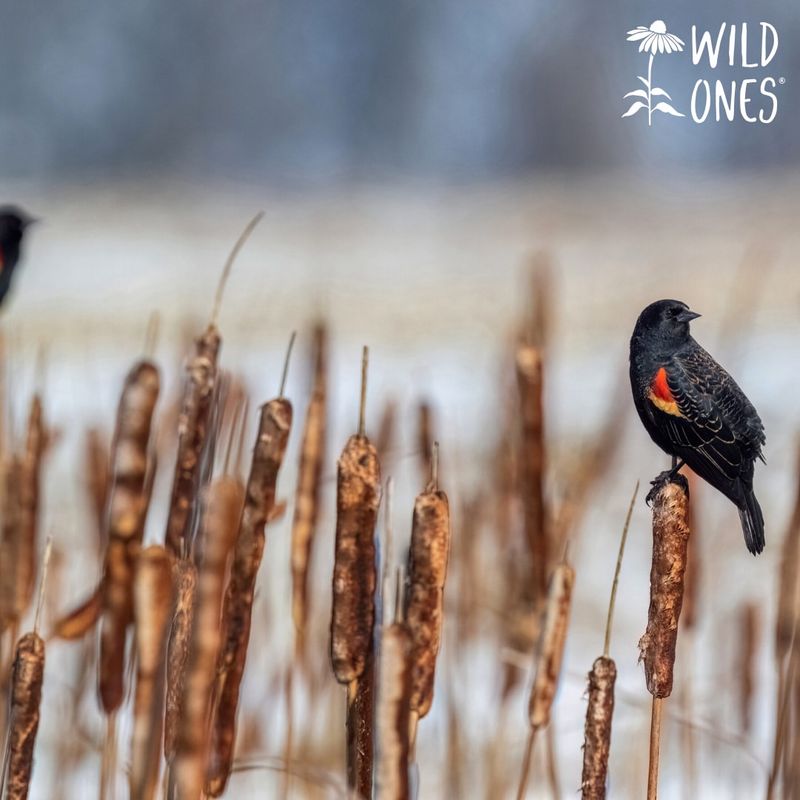
Creating natural shelter with dense shrubs and evergreen trees gives birds a cozy hideaway from the cold.
These plants protect them from wind, rain, and predators, providing a safe refuge.
Birds can roost in the foliage, using it to shield themselves from the elements. Planting native shrubs and trees that stay green in winter ensures they have year-round cover.
4. Provide Shelter With Nest Boxes
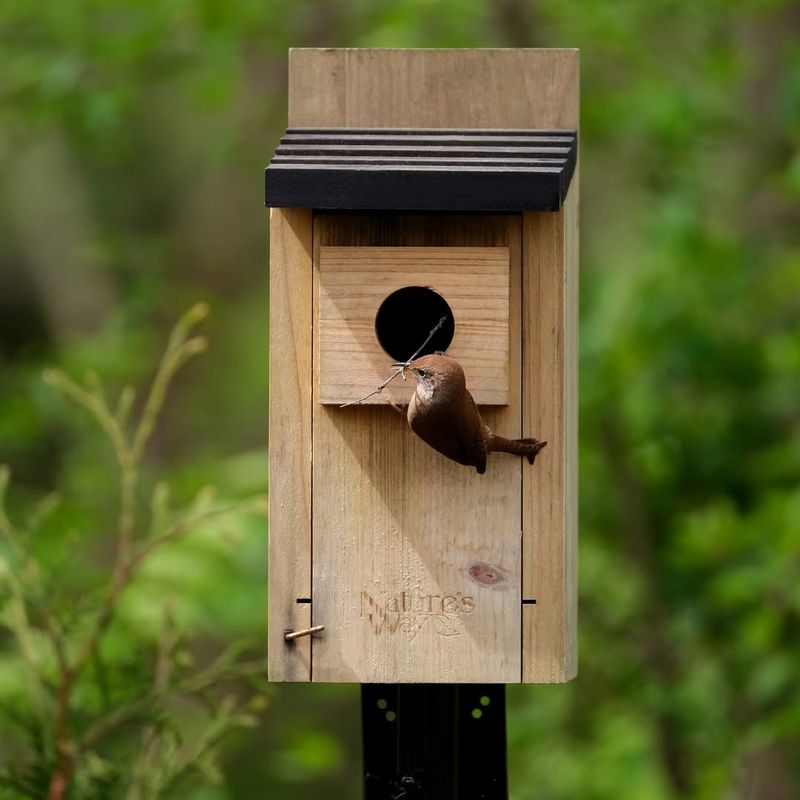
Nest boxes are a great way to give birds a safe place to shelter from the cold. Place them in spots that are protected from predators and harsh weather.
Choose a design that suits the birds in your area, with an entrance hole that fits their size.
Adding insulation like wood chips can help keep the boxes cozy during freezing nights.
Position the boxes high up, away from ground predators like cats and foxes. Regularly check and clean them to keep them safe and welcoming for your feathered friends.
5. Avoid Chemical Pesticides
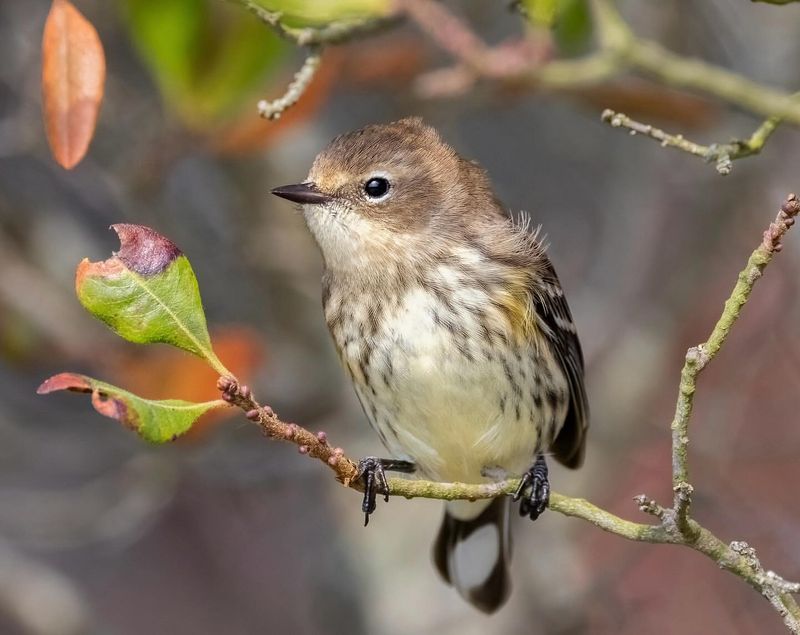
Skipping chemical pesticides in your garden creates a safer space for birds. These chemicals can harm birds if they ingest them, disrupting their health and food chain.
Instead, try natural pest control methods like encouraging beneficial insects or using organic alternatives.
Planting pest-resistant plants can also reduce the need for chemicals, helping maintain a healthy balance.
6. Install Bird Feeders
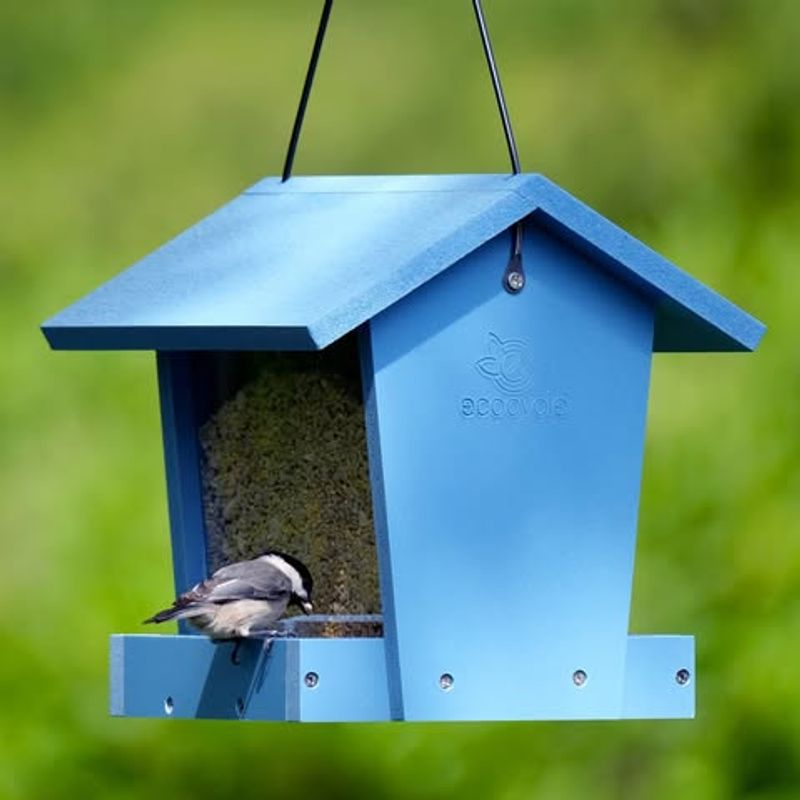
Installing bird feeders is a fantastic way to give birds a reliable food source during winter. Opt for feeders that hold seeds, suet, and nuts to cater to various bird diets.
Hang the feeders in sheltered spots to protect them from harsh winds and make them easily accessible. Keep them stocked regularly, as food can be hard to find when it’s cold.
Variety in feeders will attract different species, turning your garden into a bird hotspot. Plus, observing these feathered visitors is a fun way to connect with nature!
7. Plant Berry-Producing Bushes
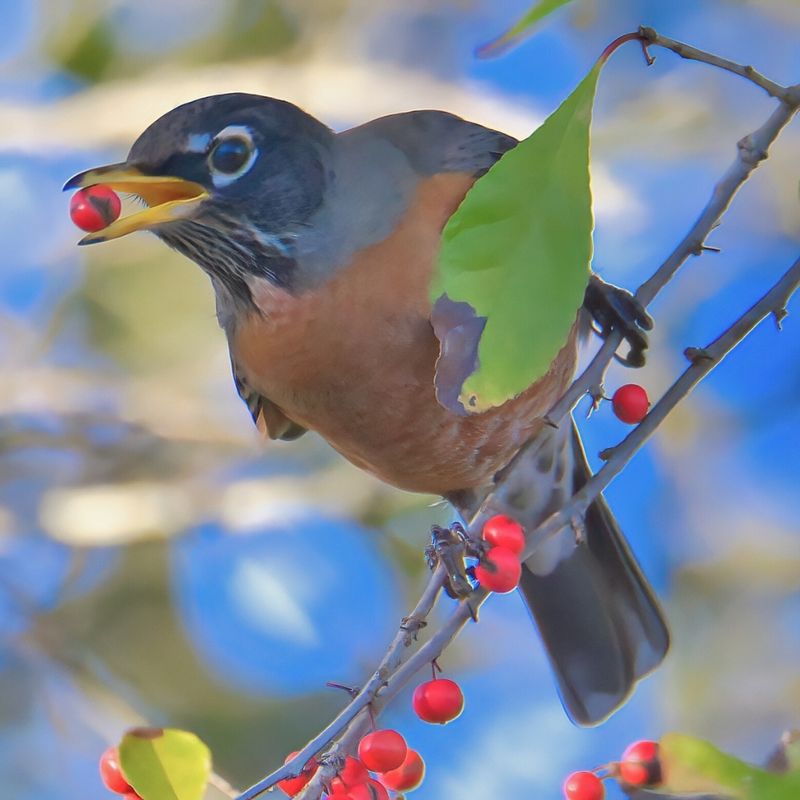
Planting berry-producing bushes gives birds a natural food source during winter. These bushes offer nutritious berries that help birds stay energized when food is hard to find.
Choose native plants that grow well in your area, like holly, juniper, and hawthorn, to attract various bird species.
These berries are perfect for winter foraging and thrive in local conditions.
Adding these bushes not only beautifies your garden but also supports bird populations. Watching birds feast on the berries adds life and color to the winter landscape!
8. Offer High-Energy Foods
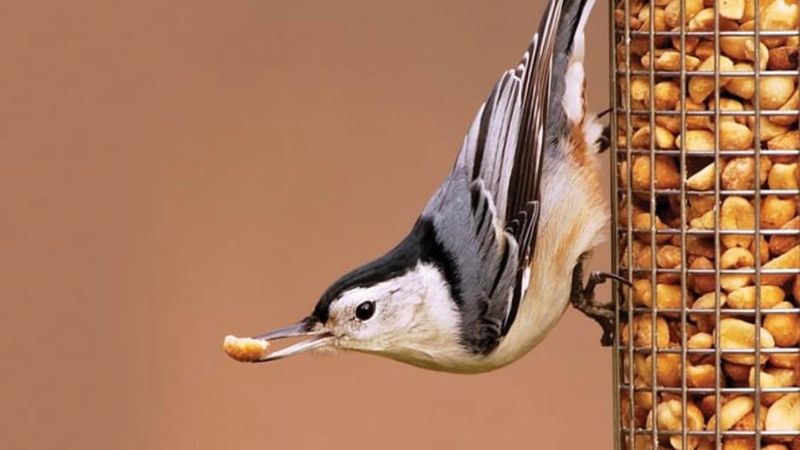
High-energy foods like seeds, nuts, and suet are perfect for helping birds stay strong in cold weather.
These nutrient-packed foods provide the fats and energy birds need to stay warm during freezing temperatures.
Offering a mix of foods can attract a variety of species, each with its own dietary needs. Adding mealworms or fruit can give them an extra nutritional boost.
9. Scatter Cracked Corn
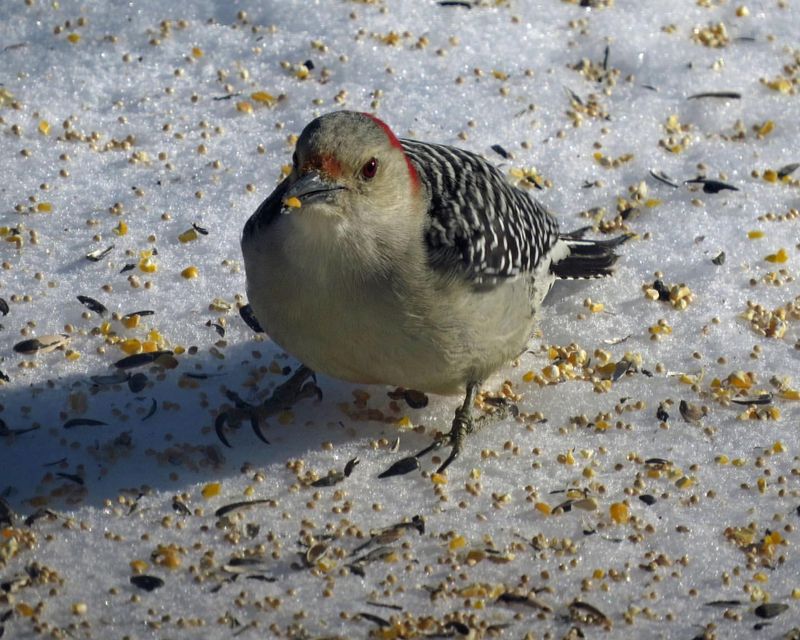
Scattering cracked corn on the ground is a great way to attract ground-feeding birds during winter. It’s a simple and affordable food source packed with energy to help birds stay warm in the cold.
Place the corn in sheltered areas, protected from harsh winds, to make it easy for birds to access.
Replenish the corn regularly and enjoy watching the birds forage.
10. Keep Feeders Clean
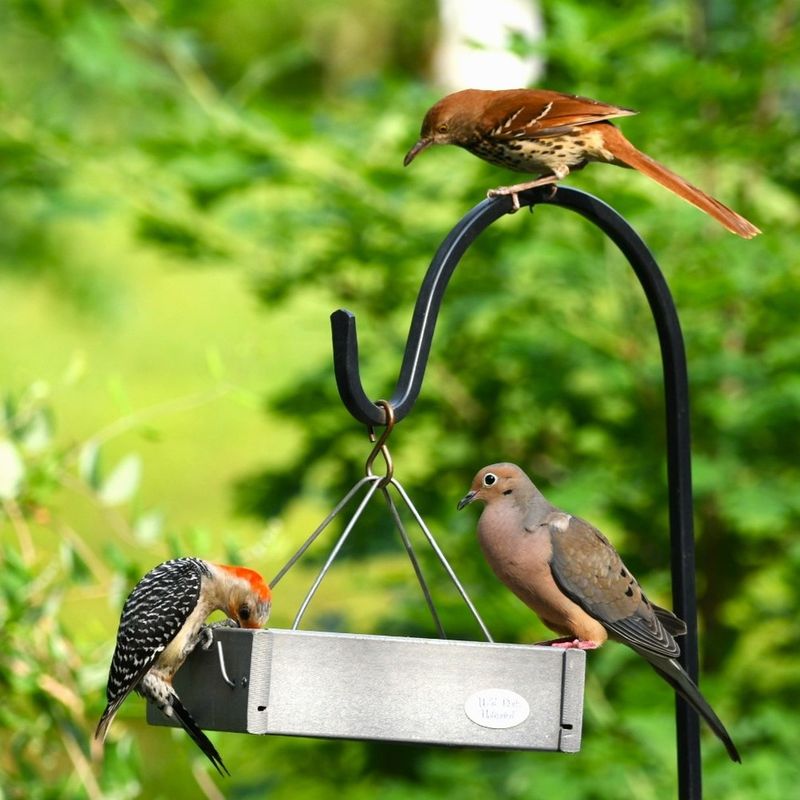
Keeping bird feeders clean is essential for preventing the spread of disease.
Wash them regularly with warm, soapy water, and make sure to rinse and dry them completely before refilling.
Clean feeders not only keep the food fresh but also attract more birds, encouraging frequent visits.
Set up a cleaning routine to avoid mold and bacteria buildup, which can harm the birds.
11. Keep Cats Indoors
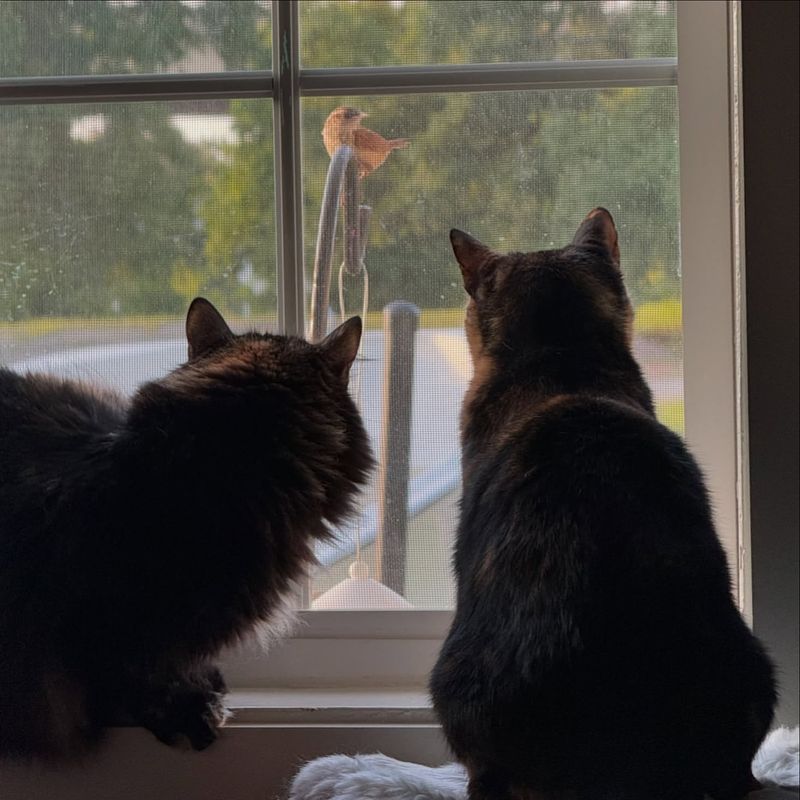
Keeping cats indoors during winter helps protect birds from harm. While cats are great pets, they can be a serious threat to birds, especially when food is scarce.
By keeping cats inside, you allow birds to forage freely without fear. This also reduces stress on birds, which is essential for their survival in tough conditions.
Keep your cat entertained with toys or window perches to keep them engaged and distracted. This small step can make a big difference for local bird populations!
12. Provide Grit
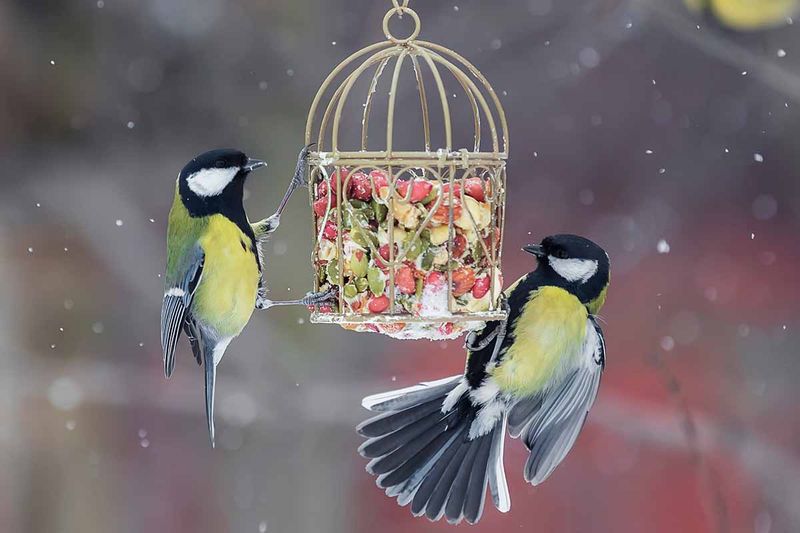
During winter, birds need grit to help digest seeds more efficiently. It’s a simple yet essential addition to your backyard bird care routine.
Scatter some grit near your feeder to aid their digestion. This small gesture can make a big difference in their survival rate during the harsher months.
13. Add Heated Birdbath
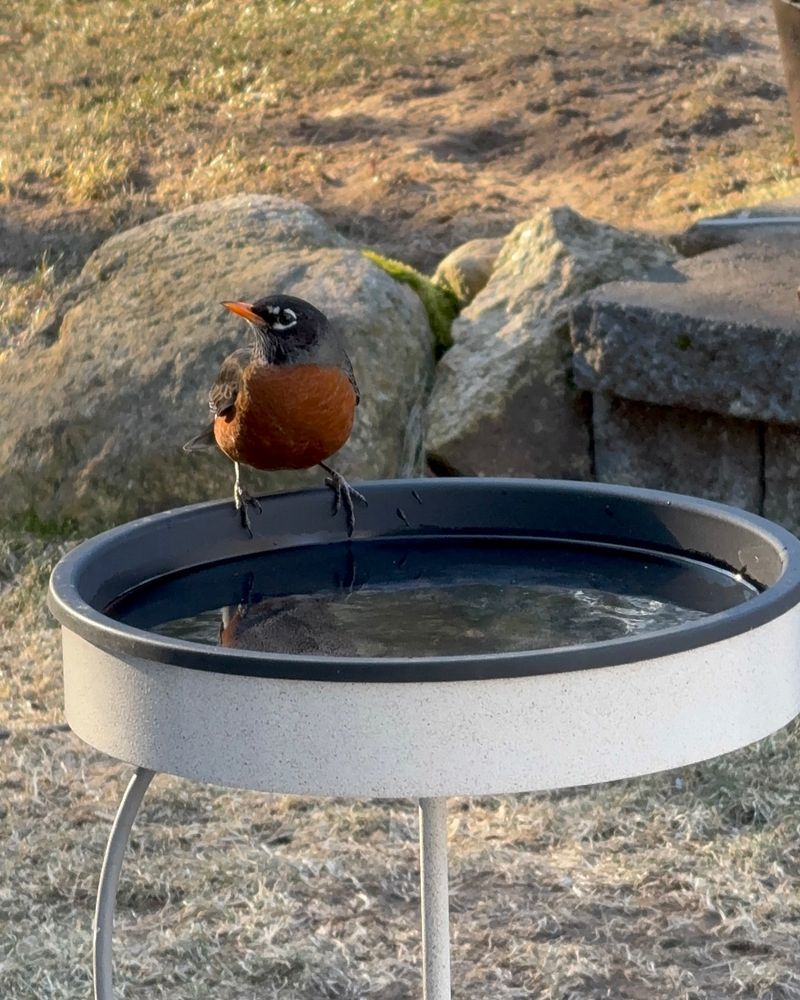
A heated birdbath is a great way to provide birds with water, even when temperatures drop.
It keeps the water from freezing, giving wintering birds a reliable source of hydration.
Place the birdbath in a sunny spot to make it more energy-efficient and appealing. Don’t forget to clean and refill it regularly to keep the water fresh and healthy.

